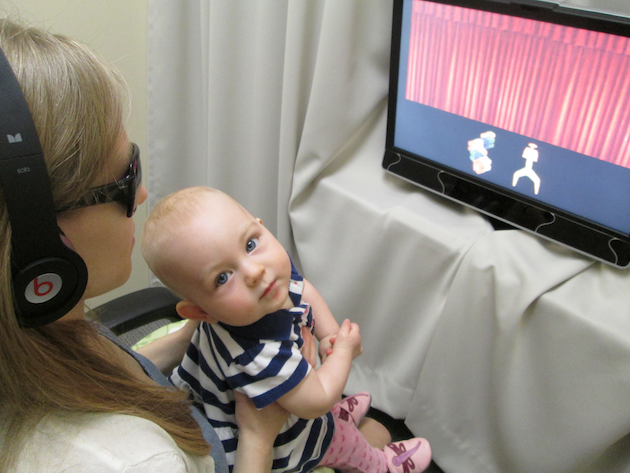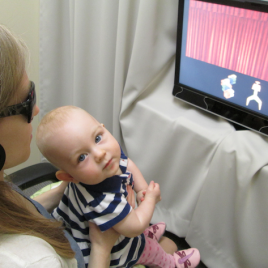
his 17-month-old was one of 61 children who were taught to differentiate between two simple pair of syllables. With their help,, researchers concluded that monolingual children learned best with a monolingual adult, and bilingual babies learned best with a bilingual adult. (Credit: Krista Byers-Heinlein)
Monolingual children and bilingual children are equally good at learning new words, as long as they hear them from people who comes from their own language environment, a new study shows.
Researchers tested thirty 17-month-old French-English bilinguals’ infants and thirty-one English monolinguals’ infants learning two simple pair of syllables (‘kem’ and ‘gem’) produced by an adult, bilingual or monolingual. Authors observed that monolingual children learned best with a monolingual adult, and bilingual babies learned best with a bilingual adult.
Original research paper published in the International Journal of Behavioral Development on June 4, 2014.
Names and affiliations of selected authors


